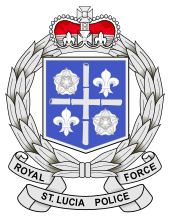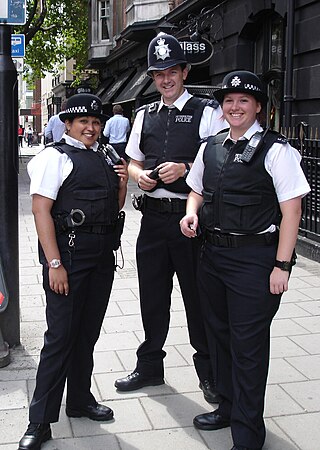
Law enforcement in the United Kingdom is organised separately in each of the legal systems of the United Kingdom: England and Wales, Scotland, and Northern Ireland. Most law enforcement duties are carried out by those who hold the office of police constable of a territorial police force.
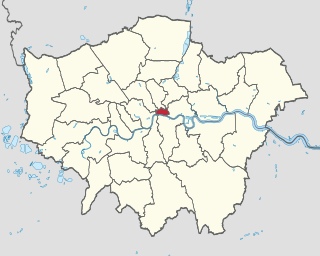
The City of London Police is the territorial police force responsible for law enforcement within the City of London, England, including the Middle and Inner Temples.
The Criminal Investigation Department (CID) is the branch of a police force to which most plainclothes detectives belong in the United Kingdom and many Commonwealth nations. A force's CID is distinct from its Special Branch. The name derives from the CID of the Metropolitan Police, formed on 8 April 1878 by C. E. Howard Vincent as a re-formation of its Detective Branch. British colonial police forces all over the world adopted the terminology developed in the UK in the 19th and early 20th centuries, and later the police forces of those countries often retained it after independence. English-language media often use "CID" as a translation to refer to comparable organisations in other countries.

The Zimbabwe Republic Police (ZRP) is the national police force of Zimbabwe, having succeeded the British South Africa Police on 1 August 1980.

The Toronto Police Service (TPS) is a municipal police force in Toronto, Ontario, Canada, and the primary agency responsible for providing law enforcement and policing services in Toronto. Established in 1834, it was the first local police service created in North America and is one of the oldest police services in the English-speaking world.

The Metro Vancouver Transit Police (MVTP), previously the Greater Vancouver Transportation Authority Police Service and formally the South Coast British Columbia Transportation Authority Police Service (SCBCTAPS), is the police force for TransLink, the public transit system of the Metro Vancouver region of British Columbia, Canada.
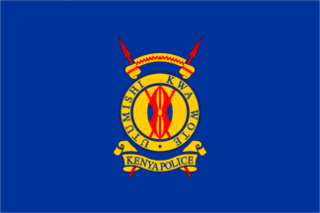
The Kenya Police Service is a national body in charge of law enforcement in Kenya. It is subordinate to National Police Service which is headed by Inspector General of Police who exercises independent command over the Service. Kenya Police is headed by Deputy Inspector General. Kenya Police is divided into Service Headquarters in Nairobi, Formations, General Duty Commands and Training Institutions.

The Royal Falkland Islands Police (RFIP) is the territorial police force responsible for law enforcement within the Falkland Islands. The current Chief Police Officer is Superintendent Barry Thacker. The Falkland Islands Police Force was granted the "Royal" prefix by Queen Elizabeth II on 1 January 1992.

The Jamaica Constabulary Force (JCF) is the national police force of Jamaica. Founded in 1867, during the period of British colonialism, the JCF was intended as a civil body with a military structure. Since the late 1990s, the JCF has undergone modernisation.

Law enforcement in Belgium is conducted by an integrated police service structured on the federal and local levels, made up of the Federal Police and the Local Police. Both forces are autonomous and subordinate to different authorities, but linked in regard to reciprocal support, recruitment, manpower mobility and common training.

Saint Lucia, an island nation in the Caribbean islands, has a relatively large tourism industry. Due to the relatively small land area of the country, most of the governmental promotion is performed by the state-operated Saint Lucia Tourism Authority, led by Executive Chairperson Agnes.
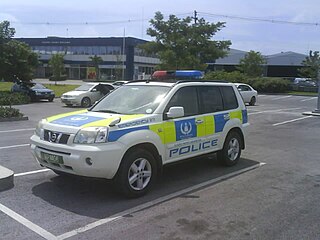
The Barbados Police Service (BPS), previously called the Royal Barbados Police Force (RBPF), is the law enforcement agency in Barbados, as established under the Police Act, Cap. 167. Richard Boyce is currently Commissioner of the Police.

Sri Lanka Police is the civilian national police force of the Democratic Socialist Republic of Sri Lanka. The police force is responsible for enforcing criminal and traffic law, enhancing public safety, maintaining order and keeping the peace throughout Sri Lanka. The police force consists of 43 Territorial Divisions, 67 Functional Divisions, 432 Police Stations with more than 84,000 people. The professional head of the police is the Inspector General of Police who reports to the Minister of Law and Order as well as the National Police Commission. The last Inspector General of Police was Deshabandu Tennakoon. The Acing Inspector General of the Police is currently Senior DIG Priyantha Weerasooriya, who was appointed on September 27, 2024
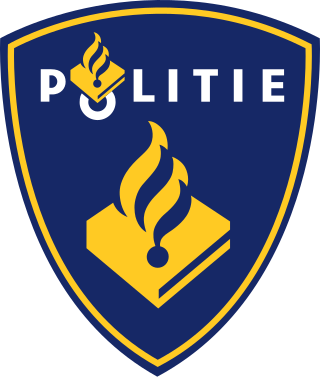
National Police Corps, colloquially in English as Dutch National Police or National Police Force, is divided in ten regional units, two national units, the police academy, police services center, and national dispatch center cooperation. The law-enforcement purposes of these agencies are the investigation of suspected criminal activity, referral of the results of investigations to the courts, and the temporary detention of suspected criminals pending judicial action. Law enforcement agencies, to varying degrees at different levels of government and in different agencies, are also commonly charged with the responsibilities of deterring criminal activity and preventing the successful commission of crimes in progress. The police commissioner in the Netherlands is Janny Knol since March 1, 2024.

The Nigeria Police Force is the principal law enforcement and the lead security agency in Nigeria. It was designated by the 1999 constitution as the national police of Nigeria, with exclusive jurisdiction throughout the country. As at 2021, it had a staff strength of about 371,800. There are currently plans to increase the force to 650,000, adding 280,000 new recruits to the existing 370,000. The Nigeria Police Force is a very large organisation consisting of 36 State commands and Federal Capital Territory (FCT) grouped into 17 zones and 8 administrative organs. As at July 2024, the NPF is headed by IGP Kayode Egbetokun. In 2020, it underwent major overhauls.

The Public Security Police Force is the non-criminal police department of Macau and a branch of the Macau Security Force. Originally known at first as the Macau Police, the force went through several name changes before taking on its current name. The PSP celebrates its foundation on 14 March 1691.

The National Crime Agency (NCA) is a national law enforcement agency in the United Kingdom. It is the UK's lead agency against organised crime; human, weapon and drug trafficking; cybercrime; and economic crime that goes across regional and international borders, but it can be tasked to investigate any crime. The NCA has a strategic role as part of which it looks at serious crime in aggregate across the UK, especially analysing how organised criminals are operating and how they can be disrupted. To do this, it works closely with regional organised crime units (ROCUs), local police forces, and other government departments and agencies.

The Botswana Police Service is the police service of Botswana and it is a part of Ministry of Defence, Justice and Security. The force has 9,500 police officers.
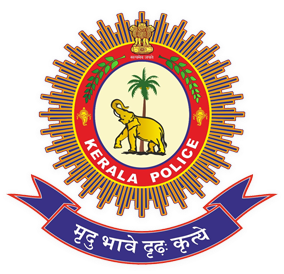
The Kerala Police is the law enforcement agency for the Indian state of Kerala. Kerala Police has its headquarters in Thiruvananthapuram, the state capital. The motto of the force is "Mridhu Bhave Dhrida Kruthye" which means "Soft in Temperament, Firm in Action" in Sanskrit. It operates under the Department of Home, Government of Kerala. The force is headed by the State Police Chief, and the incumbent chief is Shaikh Darvesh Sahib, IPS.
